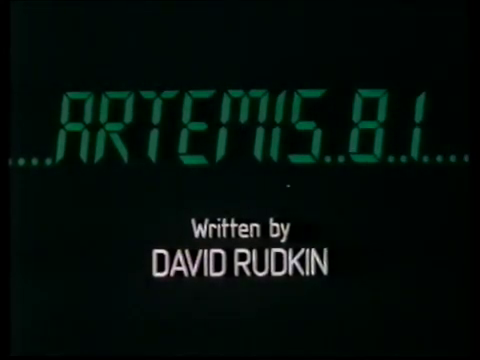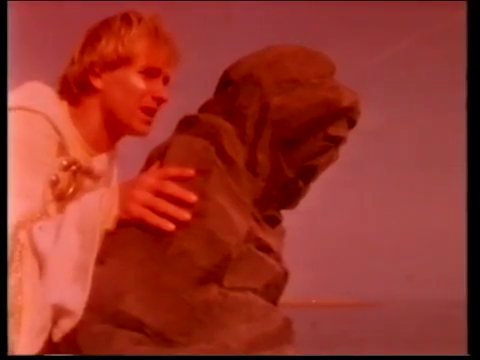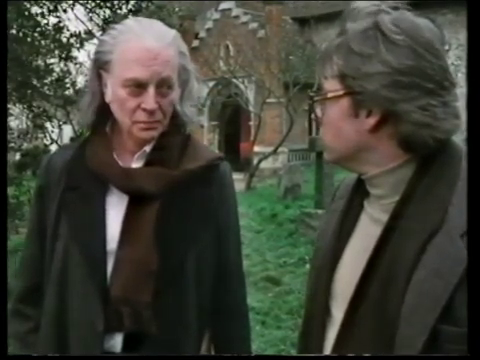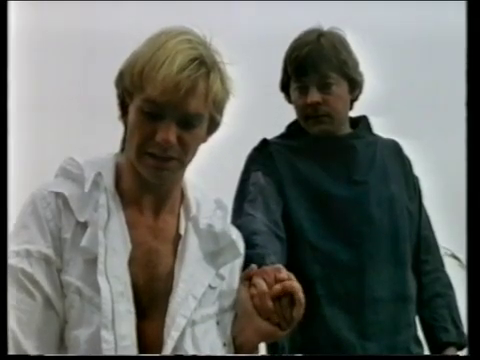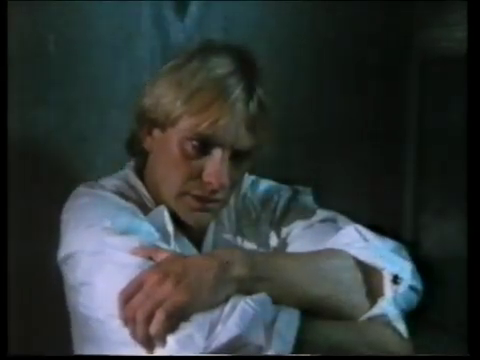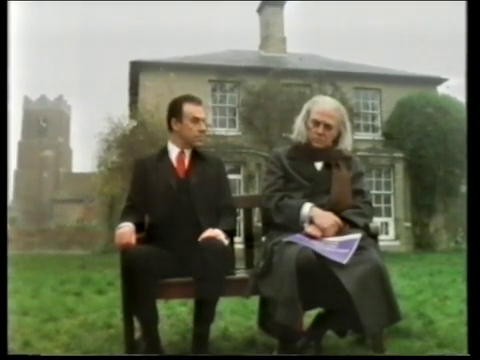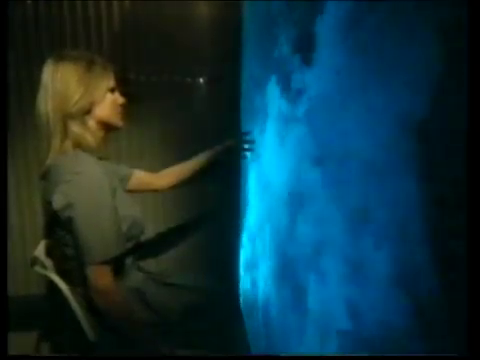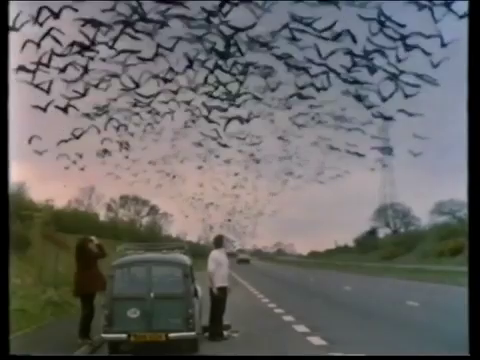-
#503 – The Mystery of the Third Planet (1981)
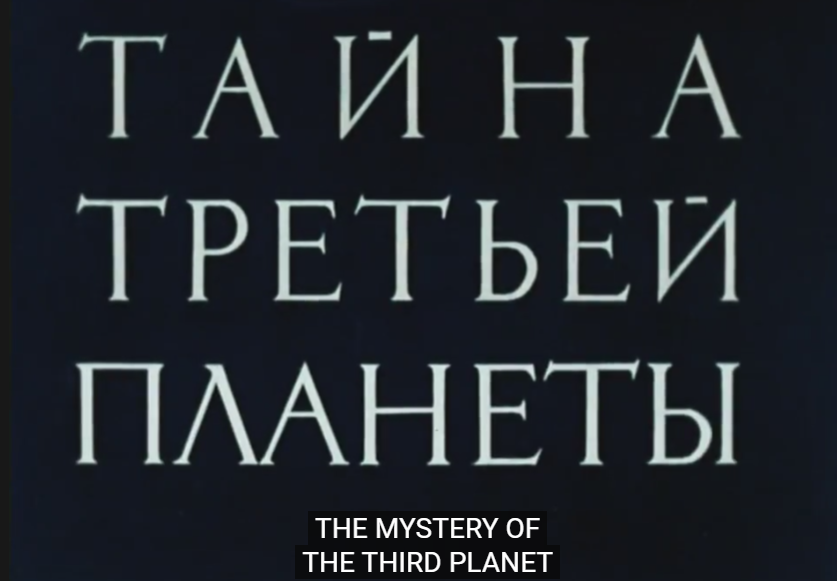
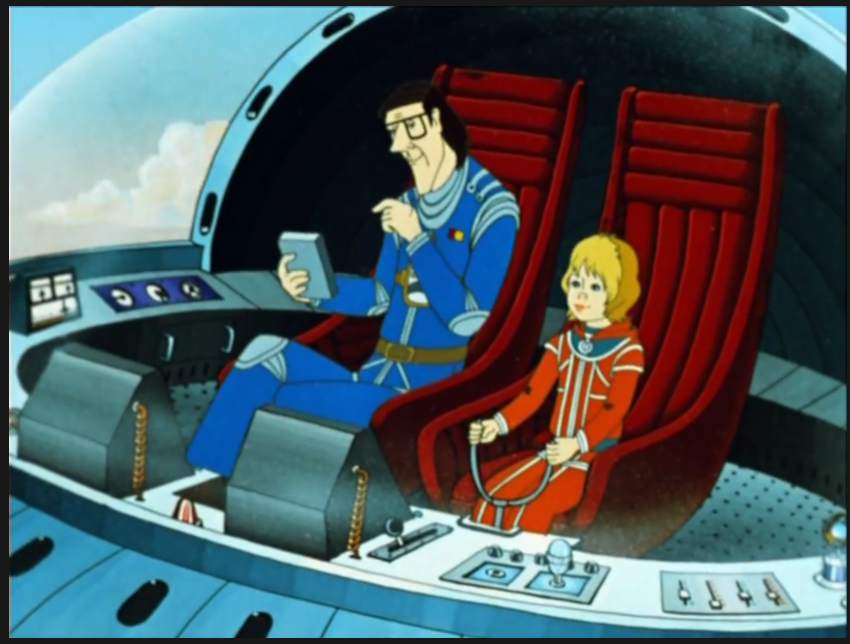
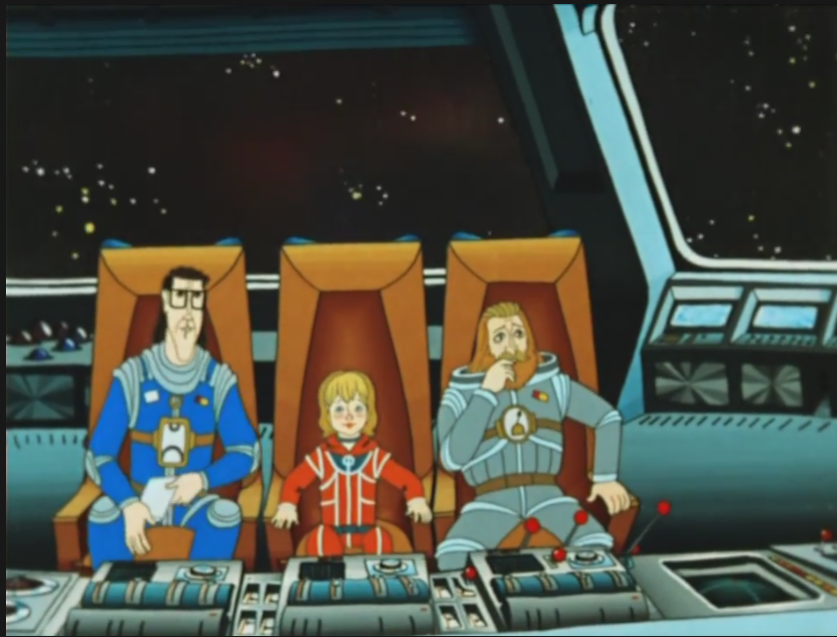
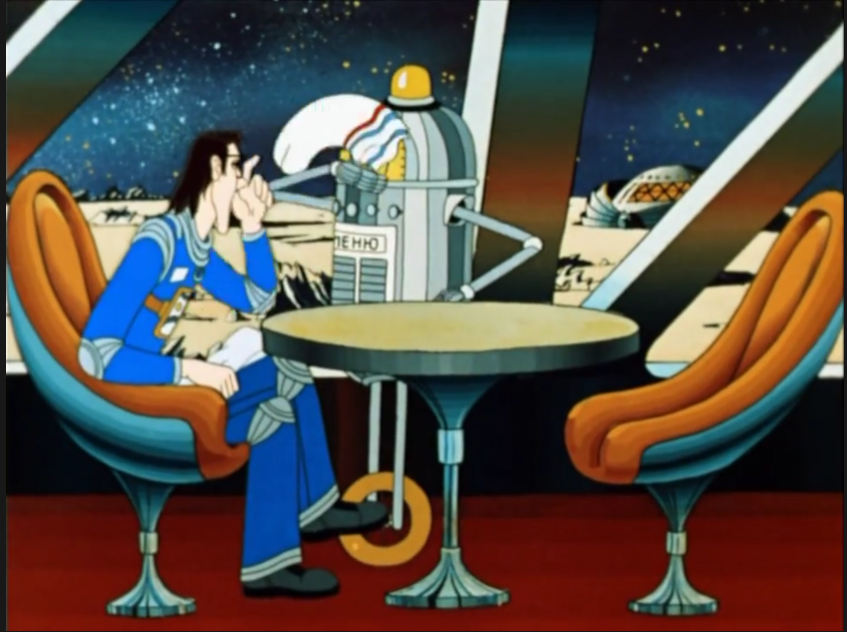
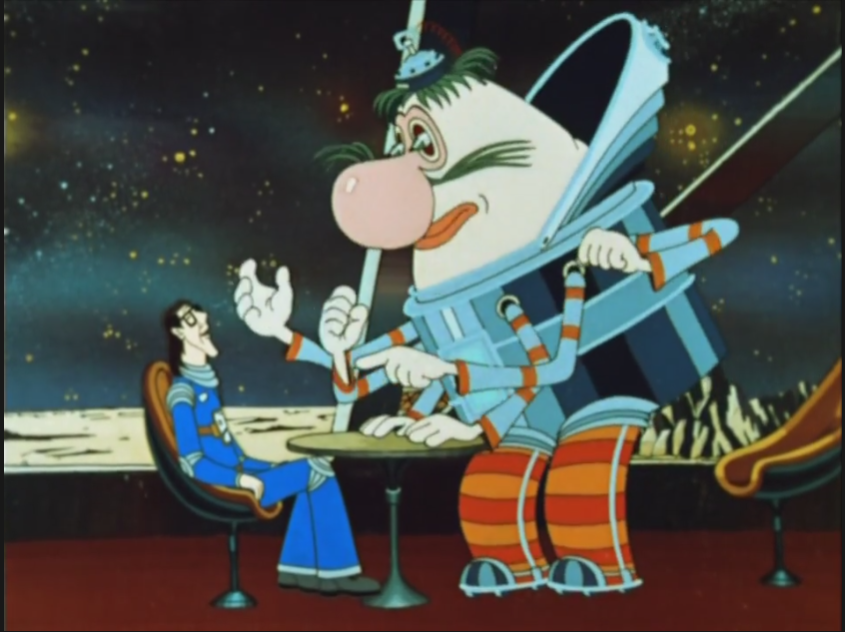
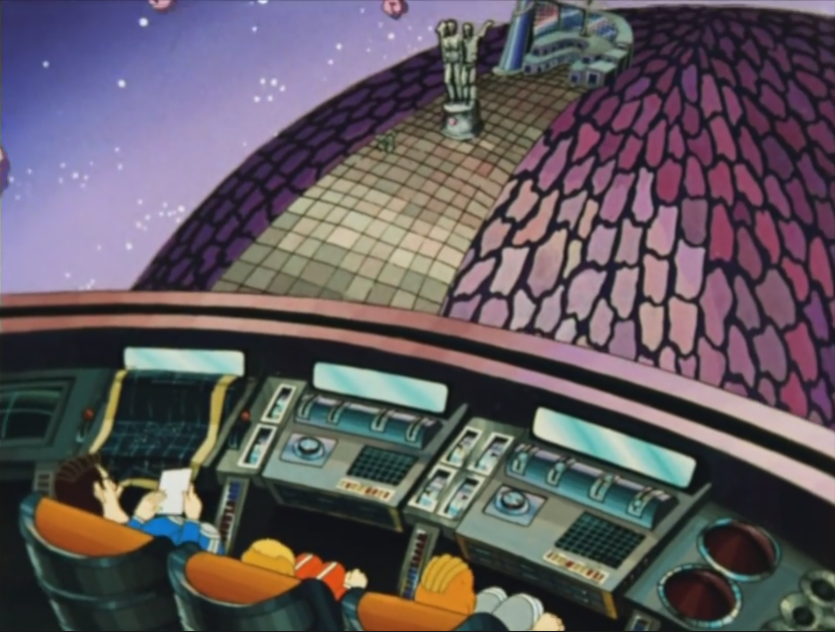
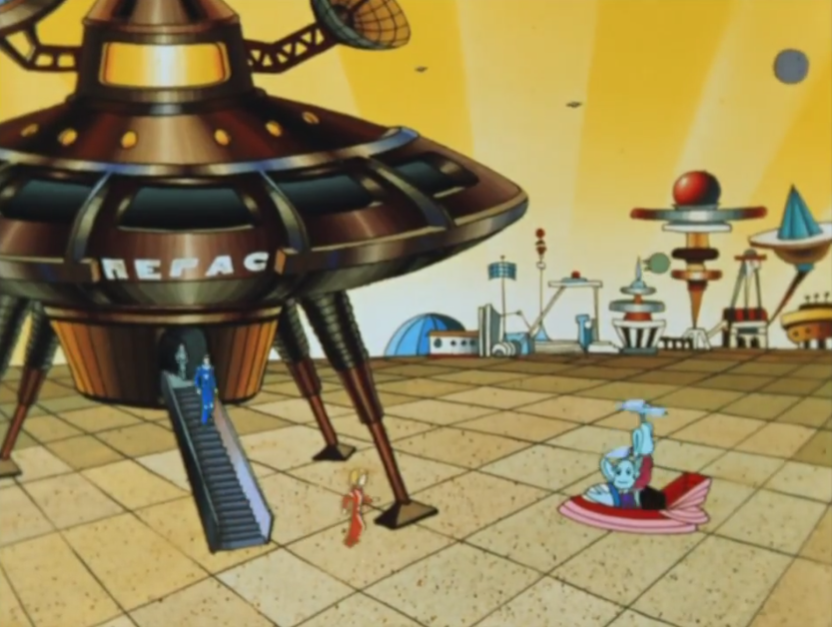
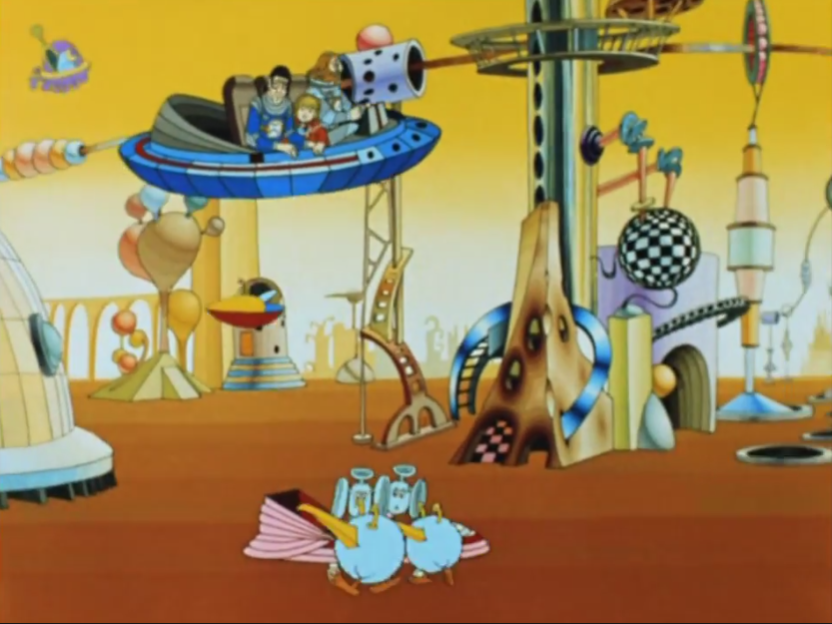
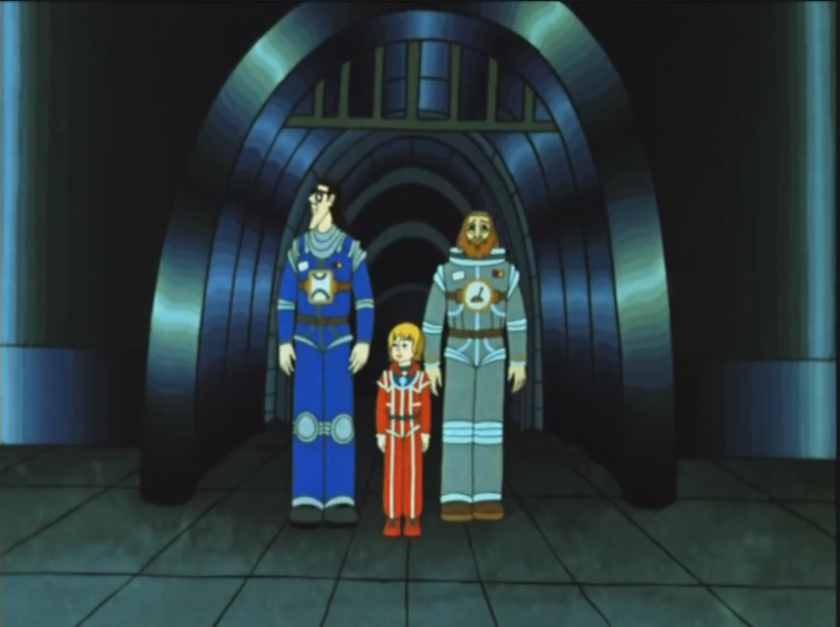
The Mystery of the Third Planet (1981)
Film review #503
Director: Roman Kachanov
SYNOPSIS: Captain Seleznyov and his daughter Alice are travelling in their spaceship to other planets to find animals for their zoo. Seleznyov runs into his old friend Gromozeka, who directs them to the Planet of Two Captains, and a museum dedicated to Captains Kim and Buran, who travelled across the universe in their own spaceship. However, they soon become embroiled in a mystery surrounding the museum’s director, and encounter danger as they try and get to the truth…
THOUGHTS/ANALYSIS: The Mystery of the Third Planet is a 1981 animated film. The film is set in the 22nd century, where we see professor Seleznyov and his daughter Alice looking for rare animals for their zoo in Moscow. On the moon, they run into Seleznyov’s friend Gromozeka, who suggests they head to the “Planet of the two Captains,” where a museum dedicated to Captain’s Kim and Buran, who travelled the universe in their spaceship, is located, and may have information about any rare or exotic animals. The story of the film embroils Alice and her Father in a mystery surrounding the fate of the Captain’s and the museum’s director Verkhovtsev. The film has a fairly short runtime at just under fifty minutes, but it fits a lot into a plot that feels complete and full of development and direction, and a mystery to unravel. It is a film primarily aimed at children, so it has to be interesting enough to keep their attention, and it certainly has plenty going on to do that. The world that it creates in the 22nd century is full of futuristic technology, high contrast colours, and weird aliens that sets up a range of interesting scenarios, but the constant moving around from planet to planet can be a bit confusing. When you’re a kid though, you’re not overly concerned about the intricacies of the plot, but rather the energy and excitement that it provides, and there’s some high stakes and danger that does that, so overall it leaves a positive impression.
The film is based on a series of books centred around the main character Alice Selznyov, which were popular in the Soviet Union with children. Alice provides a relatable character for young viewers, and is full of energy and life to fit that role. One of the highlights of the film is the alien designs: being an animated film, it has the creative scope to go wild with the alien designs, which it certainly does. Gromozeka, with his six arms and disturbing pointy eyes is the one that stands out, and is also in keeping with his appearance as described in the books. The live-action adaptations, such as the miniseries Guest from the Future and the 1987 film Lilac Ball didn’t have the budget to bring these creative designs to life, and opted for more humanoid appearances for the aliens, which is a shame. Even the human characters are distinct enough in appearance and design so that they are instantly recognisable, and despite being all different heights and sizes, they still interact seamlessly.
This film was very popular upon it’s release in 1981, and seems to have remained a favourite memory of people who grew up in that era. So much so that the 2009 film Alice’s Birthday, based on another of Alice’s adventures, has a similar art style and direction that I think tries to ride on the nostalgia of this film. It wasn’t just in the Soviet Union either: it was translated and released in the U.S. (twice) and lots of European countries too. Perhaps the runtime makes it fit neatly into a one hour TV slot (including adverts), so that might be a reason. The English dub is very much of the time and is a bit poorly produced, so if you’re going to watch this film, definitely go for the original version with subtitles. Nostalgia certainly plays a part in how fondly this film is remembered, but that’s not it entirely. It definitely does have plenty of good points independent of said nostalgia: it’s packed and energetic plot, it’s creative character designs, and it’s colourful, abstract scenery are fun and will keep the target audience entertained for its runtime. It holds up as a good film in terms of its structure, style, and design, but I’m not sure there’s enough of a spectacle compared to more modern films for younger generations to have that same feeling.
-
#490 – Artemis 81 (1981)
Artemis 81 (1981)
Film review #490
Director: Alistair Reid
SYNOPSIS: An epic battle for the future of mankind is about to wage between Helith, the angel of light, and Asrael, the angel of death, Novelist Gideon Harlax finds himself caught up in the middle of this struggle, as the world becomes the battlefield…
THOUGHTS/ANALYSIS: Artemis 81 is a 1981 TV movie. The overall story concerns the battle for the future of mankind between the angel of light named Helith, and the angel of death, Asrael. At the centre of it all seems to be Gideon Harlax, an occult novelist who has detached himself from all emotion. This TV film is very slow-paced and meandering: the first act deals very much with exploring the human creative process and dealing with emotions, which as you might expect is a very broad and varied wander through a lot of different subjects. The film definitely requires your full attention to understand what is going on across its three-hour runtime, but even then you might not get the whole picture, as the themes it explores are very subjective and may not directly impact the story. There’s definitely plenty of depth to it’s exploration of its subjects, and it pushes the boundaries of what you might expect something produced in 1981, in terms of its discussion of homosexuality, suicide and sex. All in all, there is a lot going on in this film, and while it is all very deep and powerful, there’s little sense of pacing and being able to produce an overall coherent narrative: part of that is intentional, because it is very much an exploration of the messy thoughts and feelings of people, but the part of it which ties everything into this battle between the two angels never manages to achieve it’s goal I think.
The film starts off focusing on Gwen Meredith, and her chance meeting with famed musician Albrecht von Drachenfels, whom she wishes to play for. She wishes to explore the depths of feeling and expression in her music, but Gideon, her…friend? husband? I honestly couldn’t work it out; his indifference to getting emotionally involved with anything forms a stark contrast with the people around him. We see his discussions with a number of people baring their souls while he remains cold and unmoving, and it works as a setup that allows us to explore the themes the film sets out. The plot of the two angels battling it out is the most interesting aspect, but it’s typically dealt with so abstractly it’s quite difficult to follow. There’s a plot concerning Albrecht and his Mother, and how this relates to the two angels trying to either wake up their Mother or let her sleep, but again it’s left mostly open to interpretation. On a somewhat interesting note, the angel of light is played by Sting in his first big (?) acting role: luckily, his awkward portrayal works pretty well since he’s playing an angel that doesn’t really know how to interact with humans.
Overall, Artemis 81 is a very full-bodied experience that requires your full concentration to grasp both the overall story and the exploration of the issues it raises. The uneven pacing doesn’t help with respect to getting to grips with the content of the film either. The dialogue is extremely unnatural and metaphysical, leaving every conversation feeling like an exercise in philosophical discourse. Despite all of this opacity though, Artemis 81 does have the courage to push some boundaries, and takes the subjects it addresses seriously, and if you have the concentration to watch it uninterrupted for its three hour runtime, then it’s an interesting film of it’s time.
